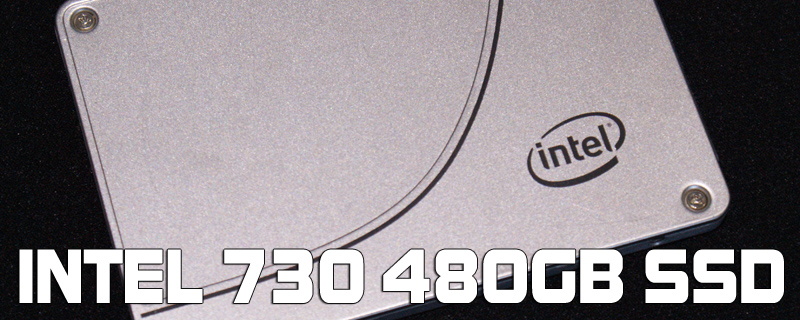Intel 730 Series 480GB Review
Conclusion
When we first heard about Intel combining their Enterprise arm with the desktop brigade we were intrigued, albeit slightly cautious. After all, it’s not as if most SSDs are particularly slow or prone to breaking. Then news broke that the controller was a specific Intel designed one, but one that had been overclocked. It was easy to scoff and wonder why, if they’d designed the controller, they didn’t just make it quicker in the first place. Plus the Samsung 840 Pro and Corsair Neutron GTX drives are damn quick and they haven’t resorted to ‘overclocking’ to attain their good speeds.
The Intel 730 Series is definitely the perfect encapsulation of the need not to judge hardware on the paper specifications but to actually benchmark it and use it to judge it properly.
Overclocking the NAND and the controller has a monumental effect upon the smaller block size read and writes. The ones that cause the majority of slowdown issues in transfers or just daily use. Rather than focussing on a large sequential number to bring in the punters who just see “550 MB!!!!!” and don’t notice the 30Kb/s 4K speeds, Intel have targeted all their knowledge at making the gap between low end performance and maximum throughput severely reduced. In certain tests the Intel 730 was 50% faster than the next best drive. Taking into account how an operating system works, with lots of tiny file dumps for webpage buttons, cookies etc, or even just temporary file storage whilst working in your applications and games, it’s immediately obvious that gaining 50MB/s in the smaller block sizes will have a far greater difference than another 10MB/s when sequentially reading a 2GB file.
Now speeds are unquestionably what we all care about. We like knowing the drive will last a million hours but so will a rock, so it would be easy for Intel to quit there. Fortunately they haven’t and that’s where the Enterprise ideology comes to the fore. By providing consistent performance in all scenarios there is less of an obvious drop-off between certain file types. Or even between compressible data and non-compressible. There were supposed to be two drives delivered so that we can test the RAID they speak so highly of in their press notes, and whilst we only received the single drive so can’t check it the rest of the quoted figures match our testing so we have no reason to believe that the 730 Series doesn’t scale as well in RAID tests as Intel claim. When you combine all those positives with full support for TRIM and other SSD optimisation techniques in the software you can be certain that the drive will remain performing at a high level far into its lifespan.
The major caveat is, of course, price. But even here we think that Intel haven’t acted like a big evil corporation and priced it through the roof, instead the drive is available in the 480GB capacity for an extremely reasonable £350. Given that a couple of years ago SSD prices were well over £2/GB we have to say we’re pleasantly surprised. The 240GB is right at the point where you can buy two and RAID them without it costing more than one big one, although you trade blazing speed for convenience.
Fast in every scenario, built like a tank, competitively priced and with the security that comes from a massive company like Intel, we can’t find a flaw with the Intel 730 Series and so it wins our OC3D Gold Award.
Thanks to Intel for supplying the 730 for review. Discuss your thoughts in the OC3D Forums.




